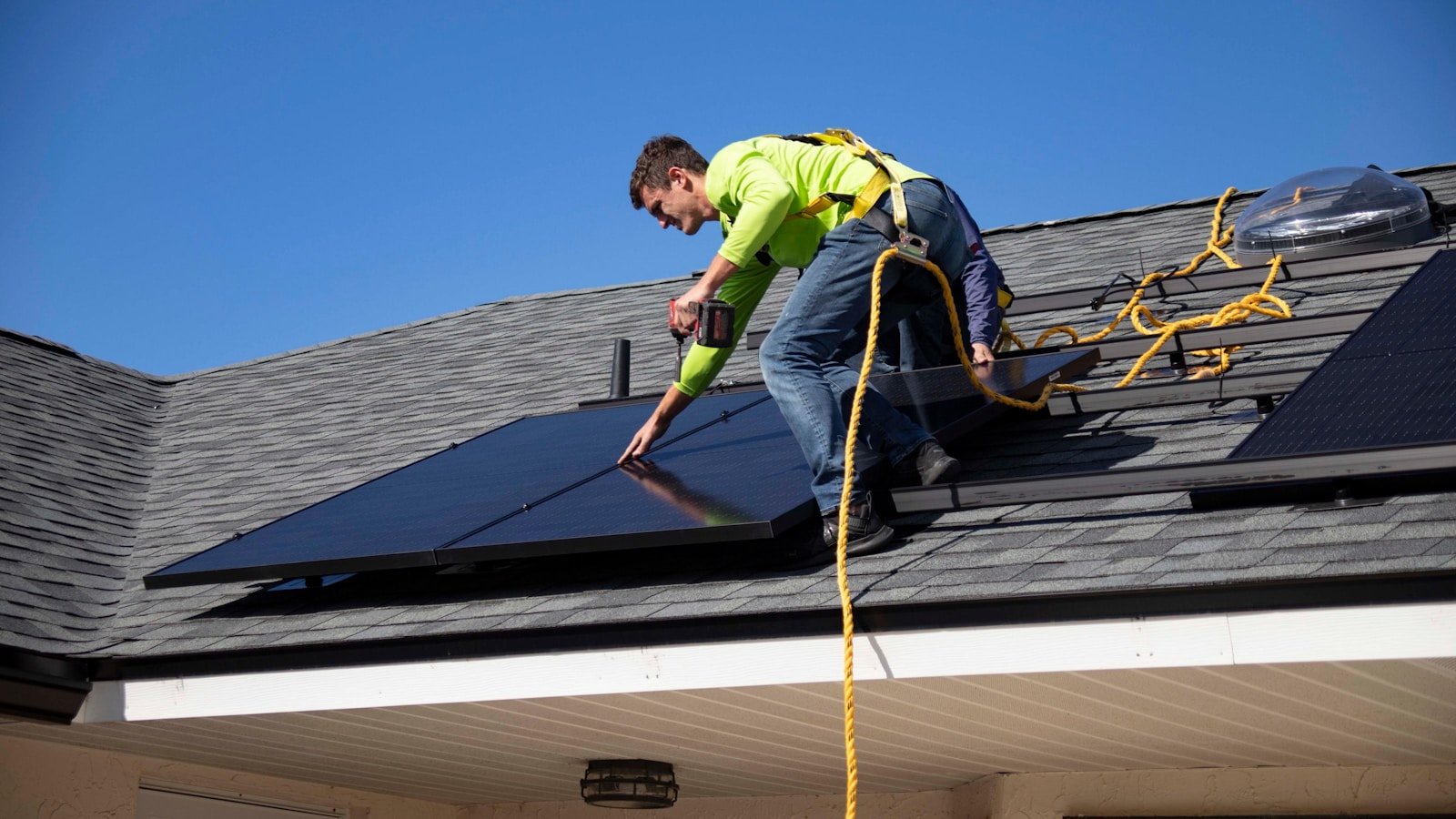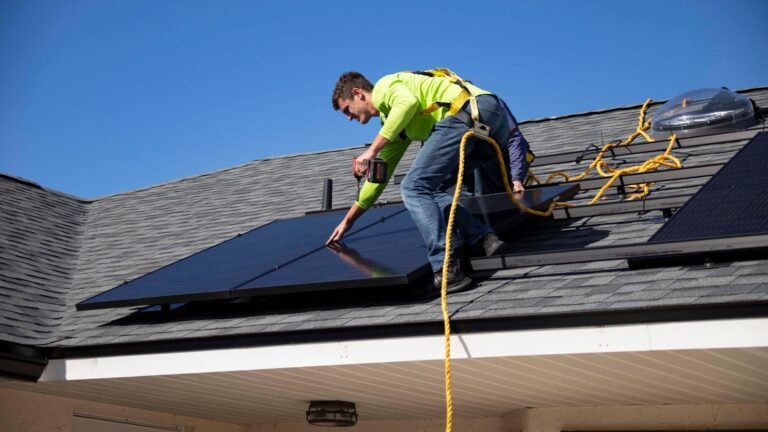Physical Address
304 North Cardinal St.
Dorchester Center, MA 02124
Physical Address
304 North Cardinal St.
Dorchester Center, MA 02124


Solar panels are a transformative solution for homeowners looking to reduce their energy costs and carbon footprint. By harnessing renewable energy, you can lower utility bills and contribute to a more sustainable planet. This guide explores how to use solar panels effectively, choose the right system, and make the most of available incentives.
Solar panels are devices that convert sunlight into electricity using photovoltaic (PV) cells. These cells capture photons from sunlight, which then generate a flow of electricity. The energy produced can be used to power your home, stored in batteries for later use, or even sold back to the grid, depending on your setup.
To dive deeper into the science behind photovoltaic cells, you can explore resources from Energy.gov.
Installing solar panels offers multiple advantages. First, they significantly reduce electricity bills by allowing you to generate your own energy. Over time, the savings can offset the initial investment, making solar panels a financially sound choice. Additionally, they increase the value of your home. Many buyers are willing to pay more for properties equipped with renewable energy systems, which are seen as a long-term cost-saving feature.
From an environmental perspective, solar energy is clean and sustainable. By relying less on fossil fuels, you can lower your household’s carbon emissions. Solar panels also contribute to energy independence, reducing reliance on traditional power grids, which can be particularly beneficial in areas prone to outages.
For a broader understanding of solar energy’s benefits, check out the Solar Power World website.
Selecting the right solar panel system requires careful consideration of your energy needs, budget, and available space. Start by calculating your average energy consumption. Review your electricity bills over the past year to understand your usage patterns. This will help you determine the size and type of system you need.
For practical tips on evaluating your energy needs, visit Energy Saver by the U.S. Department of Energy.
Proper installation is crucial to get the most out of your solar panels. Work with a certified installer who understands local regulations and permits. They can assess your property, recommend the best system, and ensure a safe and efficient installation process.
Positioning panels at the optimal angle is essential for capturing the most sunlight. This angle may vary based on your location and the time of year. Your installer should also evaluate potential obstructions, such as trees or nearby buildings, which could cast shadows on the panels.
Solar panels require minimal maintenance, but regular care can extend their lifespan and maintain efficiency. Clean the panels periodically to remove dirt, leaves, and debris that could block sunlight. Depending on your region, you may only need to clean them a few times a year. Use water and a soft brush or hire professionals for a thorough cleaning.
Inspect the system for any signs of wear, such as cracks or loose wiring, and address issues promptly. Monitoring systems can alert you to performance dips, allowing you to resolve problems before they impact energy production.
Many governments offer financial incentives to encourage solar panel adoption. These can include tax credits, rebates, and grants, which significantly reduce the upfront costs. In the United States, the federal solar investment tax credit (ITC) allows homeowners to deduct a percentage of their installation costs from federal taxes. Other countries have similar programs, so research what’s available in your area.
Net metering programs can further increase savings by allowing you to sell excess energy back to the grid. This reduces your electricity bill even further and shortens the payback period for your investment. To find incentives in your region, visit DSIRE USA.
One family in California decided to install a 6-kilowatt solar system on their home. Over the course of a year, they saved nearly $1,200 on electricity costs. They also received a federal tax credit that covered 26% of the installation expenses. Not only did they reduce their utility bills, but they also noticed an increase in the resale value of their property when they decided to move.
In Australia, a small business owner opted for a solar panel system to power their office. They saved thousands of dollars annually and reinvested those savings into growing their company. Stories like these show how solar panels can benefit both individuals and businesses.
Switching to solar energy is one of the most impactful ways to save money and reduce your environmental impact. By selecting the right system, ensuring proper installation, and taking advantage of financial incentives, you can enjoy long-term savings while contributing to a cleaner planet. If you’ve been considering solar panels, now is the perfect time to make the transition.
What are your thoughts on solar energy? Have you ever used renewable energy in your home? Share your experiences and favorite eco-tips with us. Together, we can inspire others to embrace sustainable living.